Log In
Sign Up
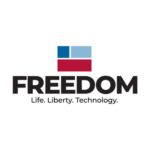
About Us
We are hiring
Freedom Page Navigation
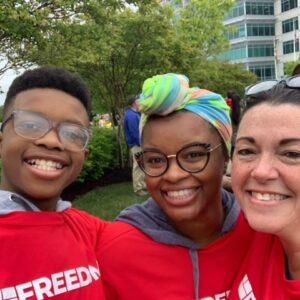
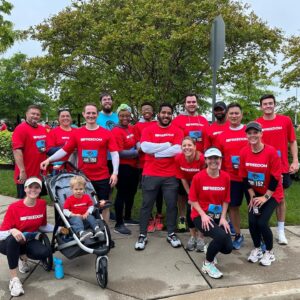
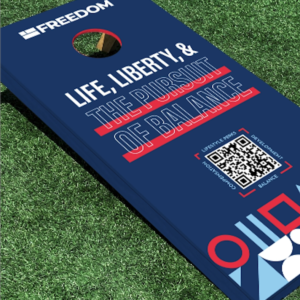


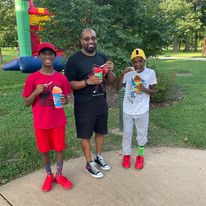



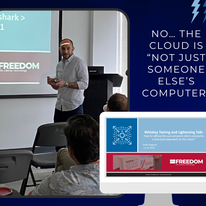
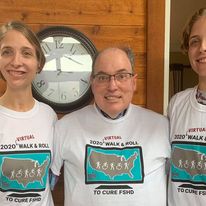
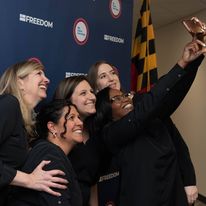



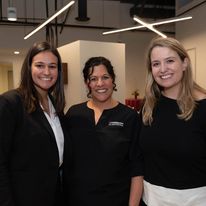
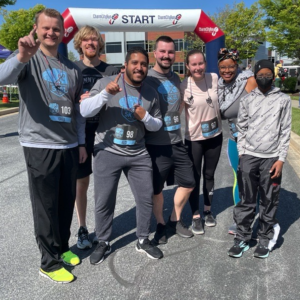

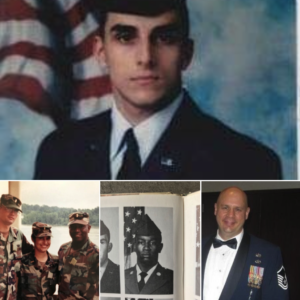
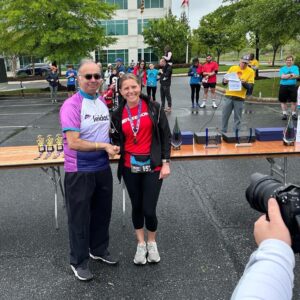
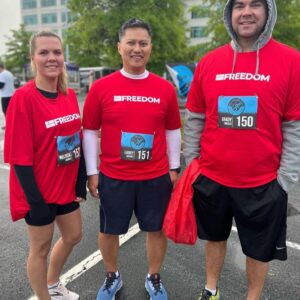
The key to Freedom Consulting Group...
… is in our name — “Freedom.” The company was created to provide its employees with the “Freedom” to grow and focus on their skills, and not worry about red tape or jumping through corporate hoops. Our goal is to provide an environment and culture that allows our employees to succeed and grow as IT professionals, and enjoy the journey along the way. At Freedom, we have created a culture where information and expertise are shared, allowing both junior and senior engineers to thrive.
Executive Spotlight
Vernon Saunders, CEO
Behind the Curtain on Culture
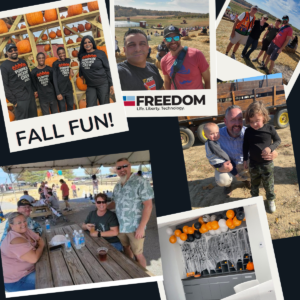 Freedom was founded with the idea of building a company free of encumbrances, a company in which employees had the freedom to be creative and innovative. It is that Freedom, our love for technology, and the integrity of our employees that enable us to deliver exceptional solutions to our clients. FCG is a company in which honesty, integrity, and trust are valued above all else. The founders believe that these values and our reputation are fundamental to our success and aim to instill these values in all who work for Freedom. We don’t believe a quick buck is worth sacrificing our values, nor do we believe in “spin.” We treat our clients with respect and “tell it like it is.” Such an approach builds trust, which in turn enables us to work in closer cooperation with our clients to ensure their success. It is through the success of our clients that we measure our own success.
Freedom was founded with the idea of building a company free of encumbrances, a company in which employees had the freedom to be creative and innovative. It is that Freedom, our love for technology, and the integrity of our employees that enable us to deliver exceptional solutions to our clients. FCG is a company in which honesty, integrity, and trust are valued above all else. The founders believe that these values and our reputation are fundamental to our success and aim to instill these values in all who work for Freedom. We don’t believe a quick buck is worth sacrificing our values, nor do we believe in “spin.” We treat our clients with respect and “tell it like it is.” Such an approach builds trust, which in turn enables us to work in closer cooperation with our clients to ensure their success. It is through the success of our clients that we measure our own success.
Compensation
- Highly competitive salaries, paid for every billable hour worked
- Referral bonuses of up to $20k per referral; paid in first pay period upon start
- Medical, dental, and vision are 100% covered by the company
- Traditional and Roth 401(k) – up to 8% company contribution with no vesting period
Lifestyle Benefits
- 15 days per year of paid time off; in addition to the 40 hours at start! High carryover cap: overage paid annually. 11 paid holidays and 2 paid customer / site closure days per year
- Company-paid life insurance with AD&D coverage included: 2x salary up to $450,000
- Referral bonuses of up to $20k per referral; paid in first pay period upon start
- Employee Assistance Program; Beneficiary Support Services; Health & Wellness Program
- Company sponsored family-friendly events throughout the year
Professional Development - $4,000 per year for training courses and conferences
- One week (5 days) per calendar year of paid training days
- $10K per year for college tuition
- Professional Membership Reimbursement
At Freedom Consulting Group, we believe our reputation is the foundation of our success. We ensure our clients always come first and provide them the highest quality of work in order to help them achieve their goals. We do this through the creation of positive relationships with our clients and providing proactive management of our highly trained team of engineers. Our technical teams focus on using the right technology to create flexible, long-lasting solutions for our clients.
When establishing Freedom, the founders’ intent was to build the type of company they want to work for. They wanted to create a company where its clients and employees were the most important part of the business. Freedom thrives on the mutual success of its employees and clients — for us, there is no greater achievement.
In the past, FCG has hosted a variety of internship programs for those seeking a career in the technology industry. One of our latest hires, Associate Software Engineer Reagan Roberts, was once one of these interns! We anticipate to be in pursuit of next summer’s (2023) interns soon.
 “Through FCG’s previous internship program I received incredible mentorship, gained experience in cutting-edge technology, and contributed to solving real-world problems. I am so thankful for the opportunity that FCG provided me as a previous intern and now as a full-time employee.”
“Through FCG’s previous internship program I received incredible mentorship, gained experience in cutting-edge technology, and contributed to solving real-world problems. I am so thankful for the opportunity that FCG provided me as a previous intern and now as a full-time employee.”Larry Magday, FTSG Senior VP of Progams INSA FEATURED EMPLOYEE!
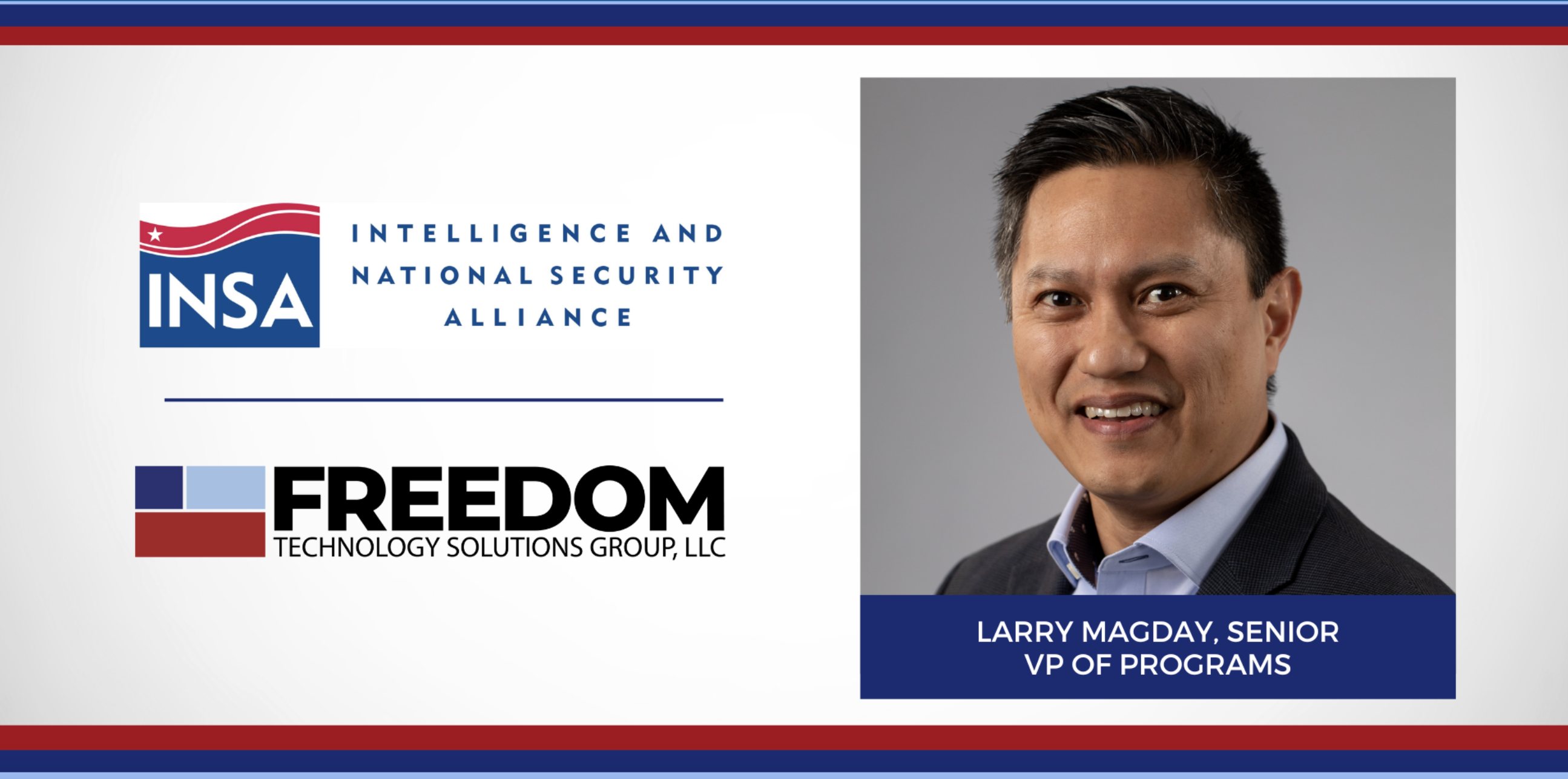 Larry Magday, Freedom Technology Solutions Group, LLC Senior VP of Programs, has been featured on the INSA website and newsletter! Join us in celebrating Larry’s dedication and contributions to shaping the future of our organization and the Intelligence Community.
Larry Magday, Freedom Technology Solutions Group, LLC Senior VP of Programs, has been featured on the INSA website and newsletter! Join us in celebrating Larry’s dedication and contributions to shaping the future of our organization and the Intelligence Community.
Check out Larry’s profile to learn more about his inspiration behind working in the IC, advice to early professionals, mentorships he’s had, and more: READ MORE
Our Family Values
Some are graduates, some are celebrating other major life events… All have CLASS and ALL are part of the Freedom extended family!
Lead HER ship Spotlight
Jennifer Walker, Senior Program Operations Manager
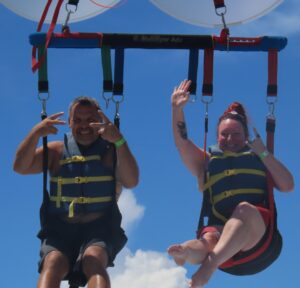 What is your current role and responsibilities?
What is your current role and responsibilities?
As a Sr. Program Operations Manager for Freedom Consulting Group (FCG), my team develops the organization’s Geo Spatial software Geographic Information System (GIS) and location-based software solutions through Agile Engineering and DevOps for large development. I also serve as the Advanced Scrum Master using SAFe framework including leading scrum meetings, sprint planning, and release planning to gather customer requirements and translate them into stories points and formulate completion criteria and blockers. My goal is to improve communication between myself, team and the customer. I establish regular feedback sessions and advanced reporting practices in a on site and remote work environments.
What do you find most interesting/rewarding about your work? What’s the most challenging?
One of the most rewarding aspects of my job is being able to help foster the growth of my team. Being able to lead new teams is also very beneficial as it allows me to interact with different people and learn about their different learning styles. Being able to acknowledge the strengths of each individual allows me to help them grow. As a Program Manager, I am able to reinforce my own knowledge and experiences.
Due to the emergence of Covid-19, many organizations had to accelerate their digital transformation efforts. This lead to new processes and technologies that can hinder productivity and lead to employee dissatisfaction. I’ve been successful by providing the most effective ways to avoid this is by taking small steps to make sure that my team and customer is on the same page.
What did you study in college and what was your first job out of school?
I studied Sports Medicine but soon realized that the medical field didn’t fit the drive that was inside me. I applied to the Federal Bureau of Investigation (FBI). My first job was a Fingerprint Examiner for the FBI. This was the start of my career with the government. I continued my passion for Defense work. The idea that I was preventing and ensuring national security satisfied the hunger inside me.
Where did you grow up and how would you describe yourself as a child?
I grew up in a small town in West Virginia (WV). The oldest of three. I was a outgoing child, very athletic, participate in a lot of activities in school and outside of school. I grew up in a era where women were taught to become homemakers/wife not career women. My father was my main supporter in my life guiding me with leadership skills and encouraging me to follow my dreams regardless of being female. He always encouraged me by telling me “the world is always in need of a strong women in high heels, high standards, and high expectations. Don’t be afraid to fail. Failure always leads to greatness”. I am highly motivated and ambitious, he brought out the strong woman that I am today.
Can you share some details on your career path and what were the critical moments that got you to where you are today?
I have 23 years of experience in Leading Information Technology Systems including Development, Security, and DevOps. Total of 15 years working with FBI. One of the most critical moments in my career was making a decision to leave the FBI and enter into the private sector world. I realized that life is way too short to apologize for taking risks. The bureau taught me to be diverse. I never longed to follow the pack. I had a drive to find myself in this world. I found myself by peeling off years of social conditions that existed as “a woman’s place” in a career environment. I’m where I am today because I un-masked that childhood girl that my father raised to be a strong and independent woman.
Looking back, is this where you thought you’d be professionally? Was it always your goal to be in this position?
Currently in my career, I’m professionally where I want to be. My career advancement with FCG has taken my career to the next level on a corporate platform. I’m very fortunate to work for a company that is growing. FCG recognizes new talent regardless of gender, race, and background. The company remains a small company culture and encourages professional
growth.
For people who are looking to write a similar story, what advice can you provide in terms of helping them achieve their career goals?
Advice that I would provide to women and men out there is to find your passion. Your passion isn’t just about money or career, it’s about finding yourself. Find what drives you, what makes you happy. Don’t remain in a career that bury’s you beneath work or other people. Find a company, like FCG, that’ll encourage the best for you. Accept change, attach yourself to a mission, a calling and a purpose. That’s how you find success and peace.
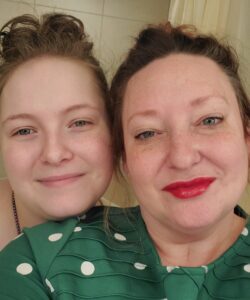
Q&A
What do you enjoy doing in your free time?
I enjoy spending time with my family, traveling, and reading.
How do you compartmentalize the demands of your career with the interests of your personal life?
Being your best is very important in order to have a more balanced perspective on life and to be able to make the most of the opportunities that come with being in this industry. Avoid taking on everything in life in order to be your best. Being selective don’t get carried away by the opportunities that are available. Maintain a healthy balance between your personal and professional life. Pursue your passions.
Coffee, tea, or neither? How many cups?
Tea! As many as needed.
Do you have any recommendations for publications, books, or podcasts?
I recommend the following books : Extreme Ownership by Jocko Willink, Lefi Babin and The Phoenix Project by Gene Kim, Kevin Behr, George Spafford
What advice do you have for current college students or recent college graduates?
If you want to get a job that you love, don’t settle for a job that you don’t want. In your career, take risks. One of the most important lessons that this economy has taught us is that we should always take risks. There is so much that can go wrong in our lives that we can’t get ahead unless we take risks. One of the most important things that you should do when it comes to your career is spend more time with people. This will allow you to develop a stronger relationship with them and avoid getting lost in the endless world of technology. 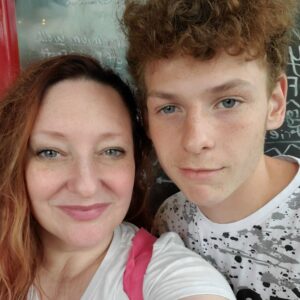 Travel as much as possible. Because of the global economy, companies are looking for the best talent regardless of where they are located. By traveling and experiencing the world, you will be able to take advantage of this opportunity and provide companies a diverse employee. Find a mentor. I believe that you need to find someone who will support and encourage you, and who will also be able to provide you with the necessary advice and guidance. Having the right mentor will allow you to achieve your goals and stay on track.
Travel as much as possible. Because of the global economy, companies are looking for the best talent regardless of where they are located. By traveling and experiencing the world, you will be able to take advantage of this opportunity and provide companies a diverse employee. Find a mentor. I believe that you need to find someone who will support and encourage you, and who will also be able to provide you with the necessary advice and guidance. Having the right mentor will allow you to achieve your goals and stay on track.
Diversity In Motion
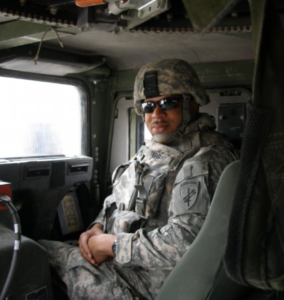 Where did you grow up and what were you like as a child? What did your parents do for work?
Where did you grow up and what were you like as a child? What did your parents do for work?
I grew up in rural Missouri about 50 miles west of St. Louis. My hometown, St. Clair, is a bit bigger than Mayberry, but still small enough that everyone knows everyone else and there aren’t many secrets. My father retired from the US Army and later retired from a second career as an electrical technician at St. Clair Die Casting. My mother raised my older sister and me for several years before going back to work for the transmission manufacturing company Borg Warner in nearby Washington, MO; later she spent time working the office for her father’s refuse
company.
What inspired you in picking your career?
One Christmas, my parents gave my sister and me an Atari 2600 thus igniting my video gaming passion. 15 short years later, I purchased my first personal computer; thereby adding another platform to my gaming repertoire. The more games I played, the more I found myself wishing I knew how to make games. I soon discovered computer programming as I explored ways to make bad games better. Along with my appreciation for gaming, I acquired a general interest for and talent with computers from being in the US Army at a time where PCs were just beginning to come into their own in everyday operations. We didn’t have the occupational specialties related to computers/networking at the brigade echelon. I quickly became the office, then the unit, resident computer ‘operator’. All that knowledge, passion, and interest laid out a path for me to follow to where I am now. In the Army, I was an All-Source Intelligence analyst with a security clearance. When I left active duty, my security clearance, and some personal contacts with retirees turned contractor, laid the groundwork for getting started in a career as government contractor.
What has your career path looked like in tech and the various positions you’ve held before joining Freedom?
My tech career, as a civilian, started in 2002 when I became a Computer Network Defense Analyst at USTRANSCOM J2. In 2004, I transitioned to the National Geospatial-Intelligence Agency (NGA) as a software developer. From 2004 to present, my employer has changed many times, and I have worn many hats from software developer to system engineer to database administrator; all within NGA.
Can you share the high-level responsibilities of your current position at Freedom?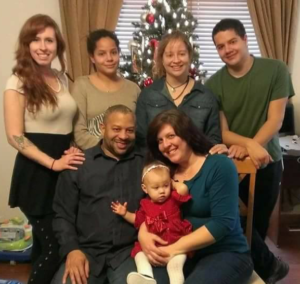
* Provide principal level oversight to development projects to ensure adherence to established development policies/procedures, execution of Agile development, and delivery of products that meet established customer requirements.
* Mentor developers
* Serve as Scrum Master for project teams and agile coach for product owners
*Provide input to and communicate strategic program direction to stakeholders
* Create, test, maintain software products
* Recommend improvements to existing software applications
What has attributed to your success thus far and what types of obstacles have you had to overcome along the way as a minority in your career?
My success can be attributed to God; from whom all blessing flow. Two loving parents and the method to their madness of childrearing. The US Army for taking my parents’ discipline lessons to all-new levels and their technological shotgun blast to face. The Illinois Veteran’s Grant program for paying my undergrad tuition. The US Department of Veterans Affairs’ post-9/11 GI Bill for paying my graduate school tuition.
I cannot recall any obstacle I’ve had to overcome as a minority in my career. Entering the civilian workforce with vast technical, as well as soft, skills precluded me from having to endure the ‘noob’ obstacles that plague many minorities starting their careers straight out of college. I’ve never felt marginalized, excluded, or otherwise discriminated against during my career; rather, it has been quite the opposite. My opinions are routinely sought by my supervisors and peers alike. Opportunities for more responsibility are abound. Promotions and offers for positions of increasing skill and responsibility are a constant. The number of TS/SCI cleared technical personnel is relatively small and perhaps that small number dictates a nature of inclusion rather than exclusion.
What advice would you give to other minorities who are considering career options?
First and foremost, find something you like to do and pursue a career along those lines. I love technology and a career in technology essentially means I get paid to have fun and learn new things. Secondly, expect nothing from anyone. That way, anything given to you is a gift to be appreciated. Lastly, hard-work, integrity, self-responsibility, and initiative are not just four buzz words to be slapped on a resume. If you truly live by those words, then even the sky won’t limit your potential.
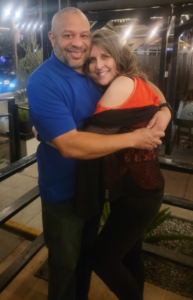 While general awareness of the problem of diversity in the tech industry is a step forward, to make a lasting change, real actions need to be taken. Do you have any ideas or suggestions on what companies or employees can do to step up and make a difference?
While general awareness of the problem of diversity in the tech industry is a step forward, to make a lasting change, real actions need to be taken. Do you have any ideas or suggestions on what companies or employees can do to step up and make a difference?
The real opportunity to make a difference presents itself long before individuals are hired. The biggest opportunity to affect this problem happens between elementary school and high school. It is much harder to start a career in the tech industry without a college degree, than with one. It is nearly impossible to do so without a high school diploma/GED. As tech jobs continue to concentrate in high cost-of-living areas (Seattle, Houston, Mountain View, San Francisco, NYC, Denver, etc), beginning salaries are less and less able sustain even college graduate families starting careers in those areas. Education is key. Those young people also need to know of the plethora of paths/programs/scholarships available that can significantly lessen the amount they’ll pay for a college education. They need to know this stuff before they are a sophomore/junior in high school with a 2.00 GPA. Perhaps tech companies could look at creating a program to hire entry-level tech employees where a percentage of salary would be traded for student repayment assistance?
... But First, Our Referral Incentives!
Internal Referral
$20,000 for current employees who refer engineers that hold an active TS/SCI with Polygraph seeking billable opportunities that match our prime and subcontract support needs.
External Referral
$10,000 paid to non-employee referrals for engineers that hold an active TS/SCI with Polygraph seeking billable opportunities that match our prime and subcontract support needs.
Internal No Poly
$5,000 for current employees who refer non-cleared or active TS/SCI clearances seeking billable opportunities on
our contracts.
External No Poly
$2,500 for external referrals from non-employees that hold an active TS/SCI
Company Overview
-
Location: Columbia, MD
-
Company Size: 100-149
-
Industry: Department Of Defense, Featured, IT Services and Consulting
